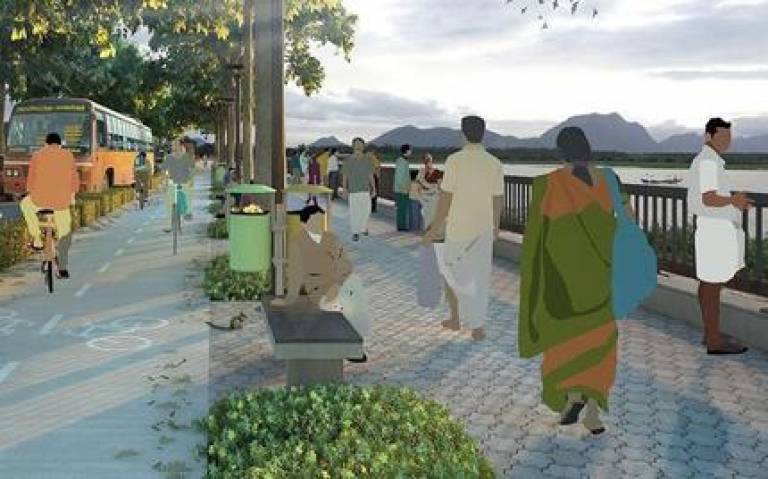Call for Papers: The Idea of the Public in Asia
5 October 2018
We invite expressions of interest for the below panel proposed at the International Convention of Asia Scholars (ICAS 11) Conference in Leiden, 16-19 July 2019. Deadline for submission of abstracts is 8 October 2018

Led by Dr Pushpa Arabindoo (Co-Director, UCL Urban Laboratory) and Dr Aurelie Varrel (French National Centre for Scientific Research), we invite expressions of interest for the below panel proposed at the International Convention of Asia Scholars (ICAS 11) Conference in Leiden, 16-19 July 2019. Deadline for submission of abstracts is 8 October 2018.
Abstract
The idea of the public emerged from a European history to launch modernity and evolved (mainly through colonialism) into a global experience, successfully turning into a more or less universalist paradigm framing discussions on citizenship, civil society and the state. In Asia, in particular, despite the fact that it is a culturally peculiar notion caught in the specific history of Europe, the idea of thepublic went beyond a European master narrative to become a modality of social life and indicates an arena in which modernity became a diversely appropriated experience. Its endurance through thedynamics of colonialism and postcolonialism suggests its continued significance in underwriting not only the norms of Asian social worlds but also rewriting its histories. While the idea of the public has equipped itself well in the face of criticism, responding to questions of race, class, gender, or even democratic practices by revealing newer sub-categories such as subaltern, plebeian, feminist, black or counter public spheres, there are concerns over the way it fits itself into the intricate and contested histories of Asia, risking preconceptions of a complex region. This has been reinforced by recent debates about theorising from the South as a result of which scholars such as Santos (2012) have openly asked if the global South needs the concept of public sphere, dismissing its theoretical and cultural propositions as entirely European. And yet, those seeking a fuller sense of the genealogy of thepublic in Asia (Scott and Ingram 2015) maintain that it is not a totalising European reality invested as it is with multiple meanings. It is in this context that we need to be careful in responding to calls for a new analytical vocabulary to make sense of the major forms of collectivity in Asia, one that would be more appropriate and may not derive from the idea of the public.
The objective of this panel is to revisit the idea of the public in Asia, asking whether we need to revise it or, more drastically, completely reject it. To do so, it considers Asia as the site of provincialisation ofthe public and invites papers that explore the myriad ways in which the public has been Asianised. We are looking for contributors who not only explore novel ways in which the idea of the public has been theorised from Asia but also its prospects
- As an empirical object ranging from public spaces, print and other media, religion as well as interactions with the state.
- As a comparative project across multiple Asias (be it authoritarian/democratic, illiberal/liberal, emerging/new, etc.).
- As a means of bringing a different (Asianised) public back to Europe, through movement ofpeople and circulation of ideas.
We welcome submissions from all disciplines including historians who have explored the historiography of the public challenging the tight categorisations built around colonialism (pre and post), as well as those from the literary and cultural studies who closely investigate the language of the public as integral to its conceptual vocabulary, besides sociologists, geographers, political scientists, anthropologists, architects and planners.
Please send a title and 250-word abstract to Pushpa Arabindoo (p.arabindoo@ucl.ac.uk) and Aurelie Varrel (aurelie.varrel@ehess.fr) by 08 October 2018.
References:
Scott, J Barton, & Ingram, Brannon D. (2015). What is a Public? Notes from South Asia. South Asia: Journal ofSouth Asian Studies, 38(3), 357-370.
Santos, Boaventura de Sousa. (2012). Public Sphere and Epistemologies of the South. Africa Development, XXXVII(1), 43-67.
 Close
Close

